1929-1945 The Nazi Experiment: A-level AQA Germany 1871-1991
1/196
There's no tags or description
Looks like no tags are added yet.
Name | Mastery | Learn | Test | Matching | Spaced | Call with Kai |
|---|
No analytics yet
Send a link to your students to track their progress
197 Terms
Long term causes of Weimar's collapse
- Too few believed in it
- Political culture shaped by the Kaiserreich, not democracy
- Inherited a broken system
- Founded in aftermath of defeat (stab-in-back myth)
- Attacked by left and right wing insurgents
- Deep rooted economic failings
- Ruhr crisis, hyperinflation, Versailles treaty, reparations
- Dawes plan and Young plan highlighted inability of Germany to support itself
- Leaders had no real authority or ability
- Constitution was weak and flawed
Legacy of the Kaiserreich
- Most Germans were raised under the authoritarian Kaiser
- Elites retained their power under Weimar, leading to it being undermined
- Economic boom under Kaiser, economic ruin under Weimar
- Idea that 'under the Kaiser everything was better'
Junkers
Aristocratic elite of Germany
Very powerful under the Kaiser, retained their positions in Weimar
- Prominent in military, civil service, judiciary
- Anti-democratic
- Betrayed Weimar, undermining it and causing its collapse
Weimar leaders
Weak and incapable
Didn't inspire confidence
Even Stresemann, the strongest, didn't try to create a stable democracy
Frequently replaced
Short term causes of Weimar's collapse
- Great Depression
- Politics of intrigue
- Betrayal by anti-democratic elites
- Death of Hindenburg
Weakness of the Weimar constitution
- Complicated
- Proportional representation meant no major party
- Reichsrat had little power
- Unstable
- Parties had lots of power
- Article 48 led to rise of Hitler
- Too many loopholes
- Lack of safeguards to prevent extremist parties being elected
Historians interpretations of Weimar's collapse
Knut Borchardt - Multiple small factors combined to create a big problem
Richard Bessel (pessimist) - Weimar leaders never created widespread support
Edgar Feuchtwanger (optimist) - Weimar was very resilient, and only the Great Depression bought it down
- Peace settlement of 1919 could never be overcome
- Authoritarian political culture was to blame
Great Depression, 1929
Collapse of the US stock market, causing collapse of economies all over the world
- Germany hit harder than any other country as loans from USA were recalled
- Loss of world trade, which had been Germany's economic strong point
- Loss of sales and loss of investment
Impact of WW1
- Debt
- Reparations
- Widow's pensions and benefits
- Dead couldn't contribute to economy
- Country wide trauma
- Insecurities
- Loss of status
- Hyperinflation consolidated problems by wiping out savings of the middle class
Impact of the Great Depression
February 1932 - Unemployment reaches 8 million
1932 - Industrial output just 58% of 1920s
Autumn 1932 - Unemployed and part-time workers outnumbered full-time workers
- Majority of unemployed under 25
- Real wages fell by 1/3
- Social security system completely overwhelmed, not designed for large numbers
- Rates of juvenile suicide increase
- Psychological despair, apathy, sense the depression was infinite
- Caused parliamentary procedure to disintegrate
- Weakened support for Weimar
- Increased support for political extremism
8 million
Number of unemployed in February 1932
58%
Industrial output in 1932 compared to the 1920s
Hermann Muller
German Chancellor 1928-1930
- Grand Coalition of SDP, DDP, DVP, BVP, Centre
- Govt plagued by internal division
- Unable to solve economic problems, weakening confidence in parliamentary institutions
- Resigned after Hindenburg wouldn't rule by decree
- Resignation was a turning point as Hindenburg gained power and elites manoeuvred to put Hitler in power
- Last parliamentary Chancellor
- Chancellor during Wall Street Crash
- Hindenburg refused to use Article 48 to pass unemployment benefits
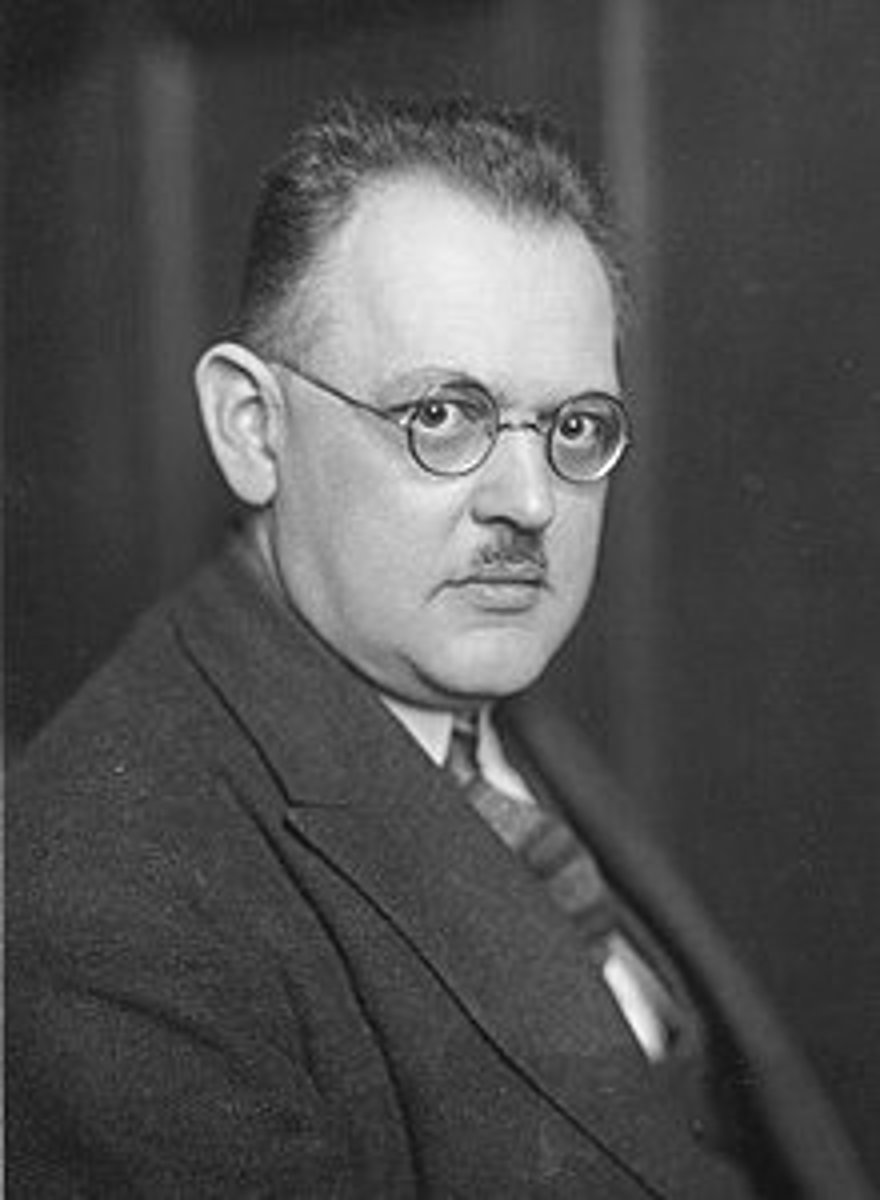
List of Chancellors
Hermann Müller: 28/6/28 - 27/3/30
Heinrich Brüning: 30/3/30 - 30/5/32
Franz von Papen: 1/6/32 - 17/11/32
Kurt von Schleicher: 3/12/32 - 28/1/33
Adolf Hitler: 28/1/33 - 30/4/45
Joseph Goebbels: 30/4/45 - 1/5/45
Lutz von Krosigk: 2/5/45 - 23/5/45
Reichstag
German lower house of parliament
- Became increasingly marginalised
- Series of minority govts, manipulated by Hindenburg and his advisors
- Series of manoeuvring and counter-manoeuvring as elites replaced democracy with authoritarianism
- Increasing factionalism
- Drift to extremism
- People, especially middle class, lost confidence in it
KPD
Leaders - Thälmann, Collective Leadership
- Far left
- Anti-Weimar, Communism, Marxism
- Saw increasing support as Weimar died
- Followed guidance from Moscow
1928 - Opposed co-operation with SPD
Made illegal
400,000 members
1945 - Over half of members imprisoned, 40,000 killed
SPD
Leaders - Müller
- Left-wing
- Pro-Weimar, socialist
- Largest socialist party
- Formed Weimar Republic
- Won 1928 election
- Largest party in Reichstag: 1912 - 1932
- Increasing out of touch
- Unimaginative leadership
- Divided between left and right wing
Liberals
Group of centre-left parties in the Reichstag
- Faded
- Failed to generate a dynamic centrism to sustain Weimar
Zentrum party
Leaders - Erzberger, Brüning
- Pro-Weimar, catholic, centre-right
- Focused on catholic issues
- Became increasingly right-wing
- Involved in 19 of the 21 Weimar coalitions
- Became divided over social and economic policy
- Was the backbone of Weimar
- Supported the Enabling act due to the Concordat
Heinrich Bruning
Chancellor of Germany: 29 March 1930 - 30 May 1932
- Leader of the Zentrum party
- Headed coalition govt without SPD
- Predisposed to authoritarianism
- Became reliant of Article 48
- Passed 29 bills by the Reichstag, passed 109 by emergency decrees
- Controlled by Schleicher
- Stopped by-elections
- Banned the SA due to pressure from state govts
- Parliamentary govt died under him
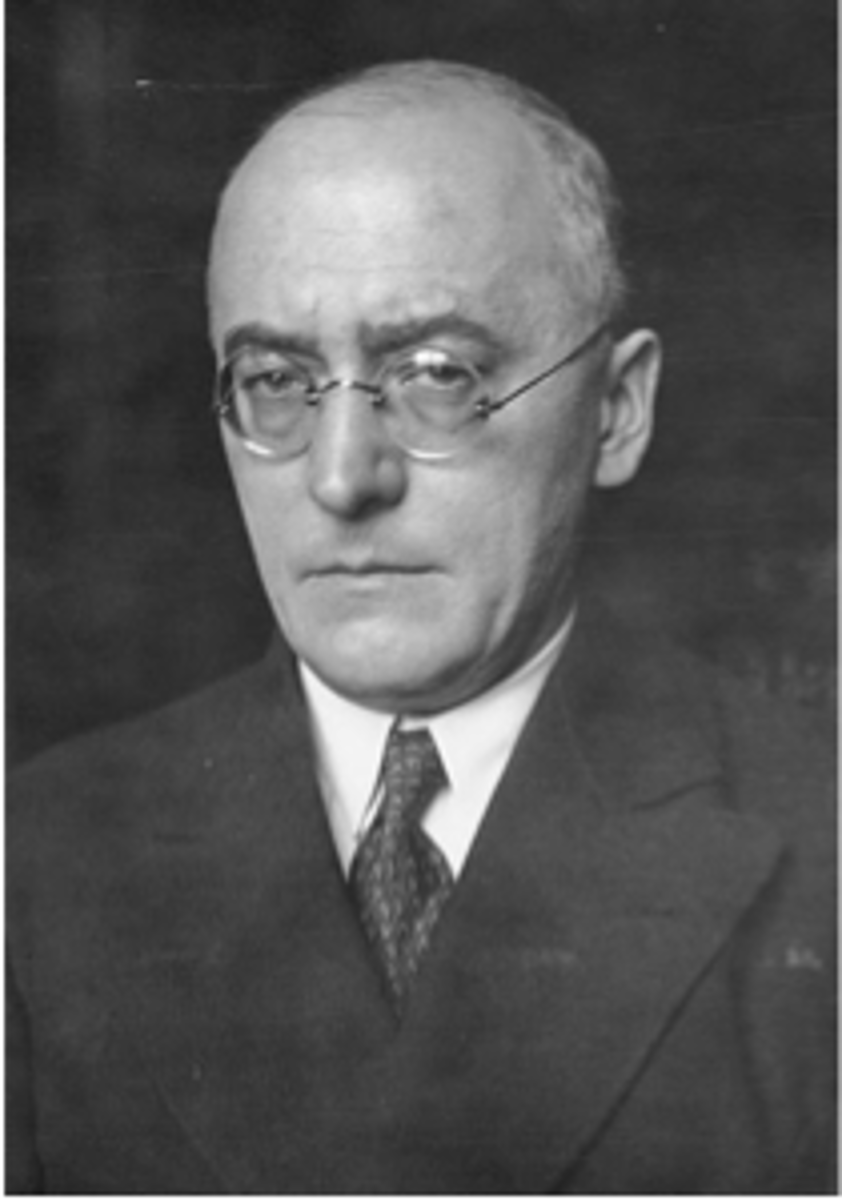
Kurt von Schleicher
Chancellor of Germany: 3 December 1932 - 30 January 1933
- Head of the Military
- Held real power
- Manipulated Bruning, Hindenburg, von Papen, Hitler
- Tried to use the Nazis as a pawn
- Wanted an authoritarian dictatorship
- Wanted SA integrated into army
- Lost influence with Hindenburg
- Had Bruning removed by convincing Hindenburg he couldn't prevent a civil war
- Engineered Groener's resignation from the army as he opposed the SA being integrated into the army
- Controlled Von Papen and picked his cabinet
- Killed in the Night of the Long Knives
- Incredibly arrogant
- Believed he alone was the 'strong man' that Germany needed
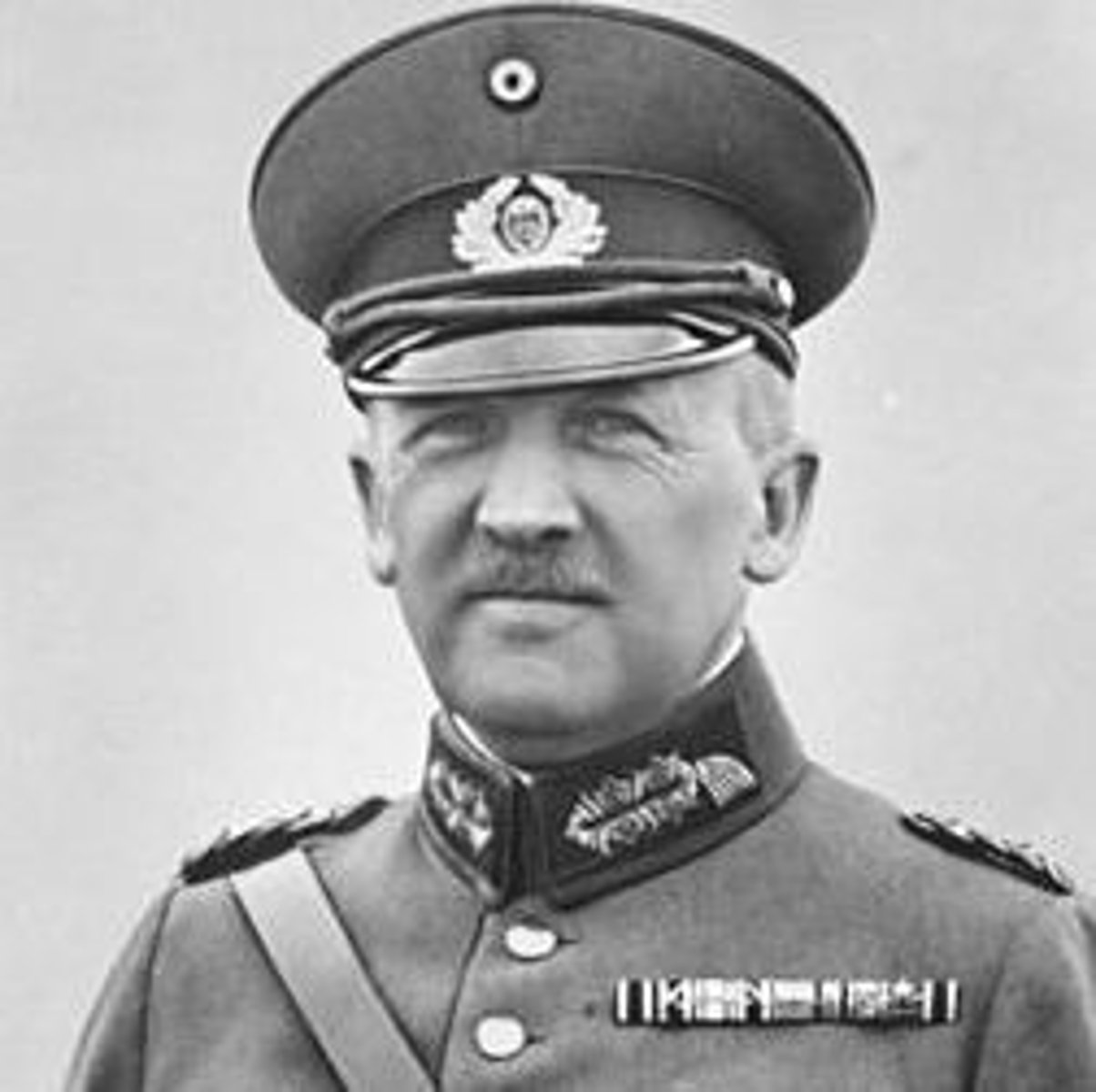
Politics of intrigue
29/3/30 - Brüning appointed Chancellor
14/9/30 - Reichstag election, flight to extremes
1931 - Schleicher starts using the Nazis to gain power
13/4/32 - Brüning bans the SA
1932 - Schleicher makes deals with the Nazis, forces Brüning to resign
1/6/32 - Von Papen appointed Chancellor at Schleicher's request
20/6/32 - Ban on the SA lifted
20/7/32 - Von Papen dissolved Prussian govt, makes himself Reich Commissioner of Prussia
31/7/32 - Reichstag elections, Nazis largest party. Anti-Republican parties now majority
13/8/32 - Hitler starts 'all or nothing' strategy, but is refused by Hindenburg. New elections called
6/11/32 - Reichstag election. Nazis decrease votes, but still largest party
17/11/32 - Papen resigns after being unable to compromise with Hitler
23/11/32 - Hindenburg rejects Hitler's demand to be made Chancellor
3/12/32 - Schleicher appointed Chancellor
8/12/32 - Strasser forced to resign from the Nazis, preventing split
Von Papen starts meeting with Hindenburg and Hitler to get revenge on Schleicher
30/1/33 - Hitler appointed Chancellor
SA
die Sturmabteilung
Paramilitary wing of the Nazis
Headed by Ernst Rohm
- Manipulated by Schleicher
- Created terror and disruption on the streets, weakening confidence in democracy
- Banned by Brüning in April 1932
- Unbanned by Papen in June 1932
- Wanted to be integrated into the army
- Too violent, drawing the attention of the army
- Army wanted them removed or they would force Hitler out of office
- Victim of the Night of the Long Knives
Ernst Rohm
Head of the SA
- Long term Nazi
- Critical in the use of terror to bring the Nazis into power
- Wanted a second revolution to make the SA in charge of the military
- Hitler came to see him as a threat
- Assassinated in the Night of the Long Knives
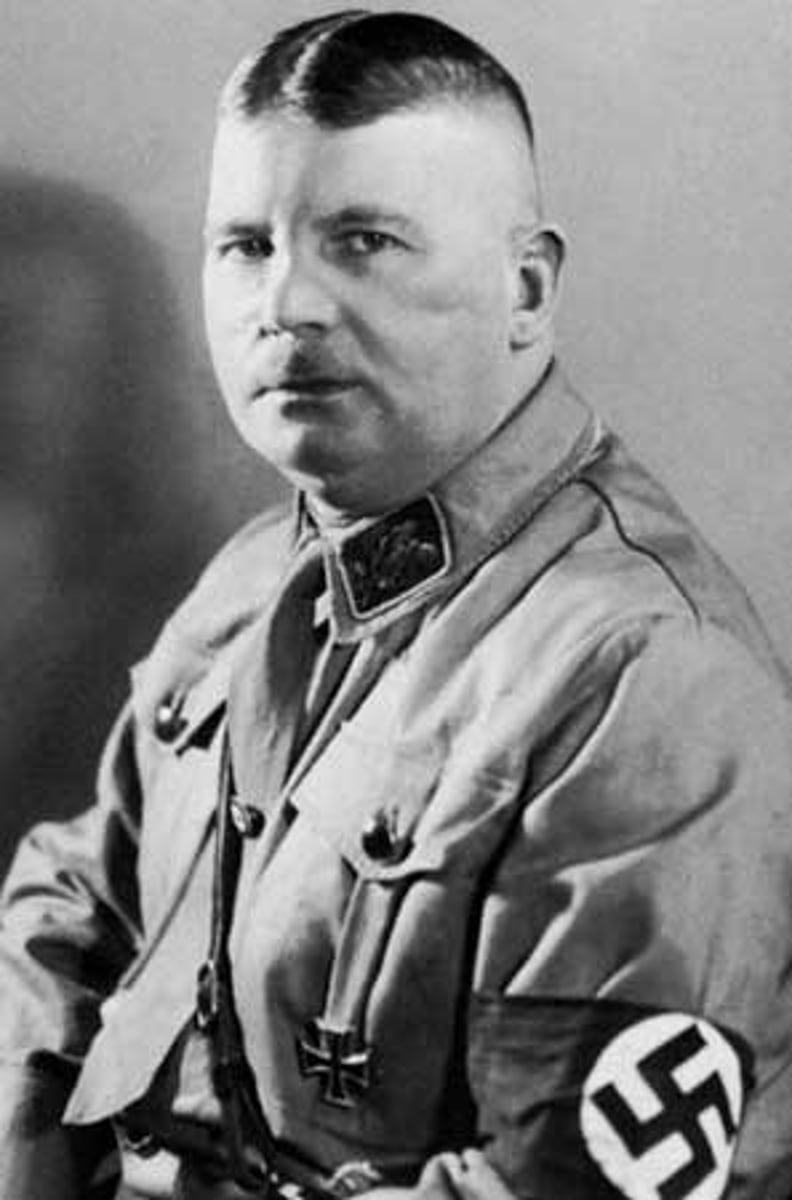
Schleicher's response to the SA being banned
- Forced Groener to resign (he opposed Schleicher's intent to integrate the SA into the army)
- Met with Hitler to secure a gentlemen's agreement that he would support the govt if Brüning fell
- Persuaded Hindenburg that Brüning was too weak to prevent a civil war and had him replaced with Von Papen
Gentlemen's agreement
Deal between Schleicher and Hitler that the Nazis would support a presidential government if Brüning was to fall from power and in return Papen would lift the ban on the SA
- Hitler went back on it by refusing to be apart of Papen's cabinet
Franz Von Papen
German Chancellor: 1 June - 17 November 1932
Irrelevant Zentrum politician with no power base
- Hand picked by Schleicher
- Schleicher's puppet
- Cabinet was picked by Schleicher
- Unbanned the SA
- Forced to resign after he couldn't form a coalition with the Nazis
- Removed Prussian govt, last stronghold of democracy
- Chancellor at the height of politics of intrigue
- Blamed Schleicher for his removal from the Chancellorship
- Tried to get revenge by convincing Hindenburg to make Hitler Chancellor with him as Vice-Chancellor
- Placed under house arrest in the Night of the Long Knives
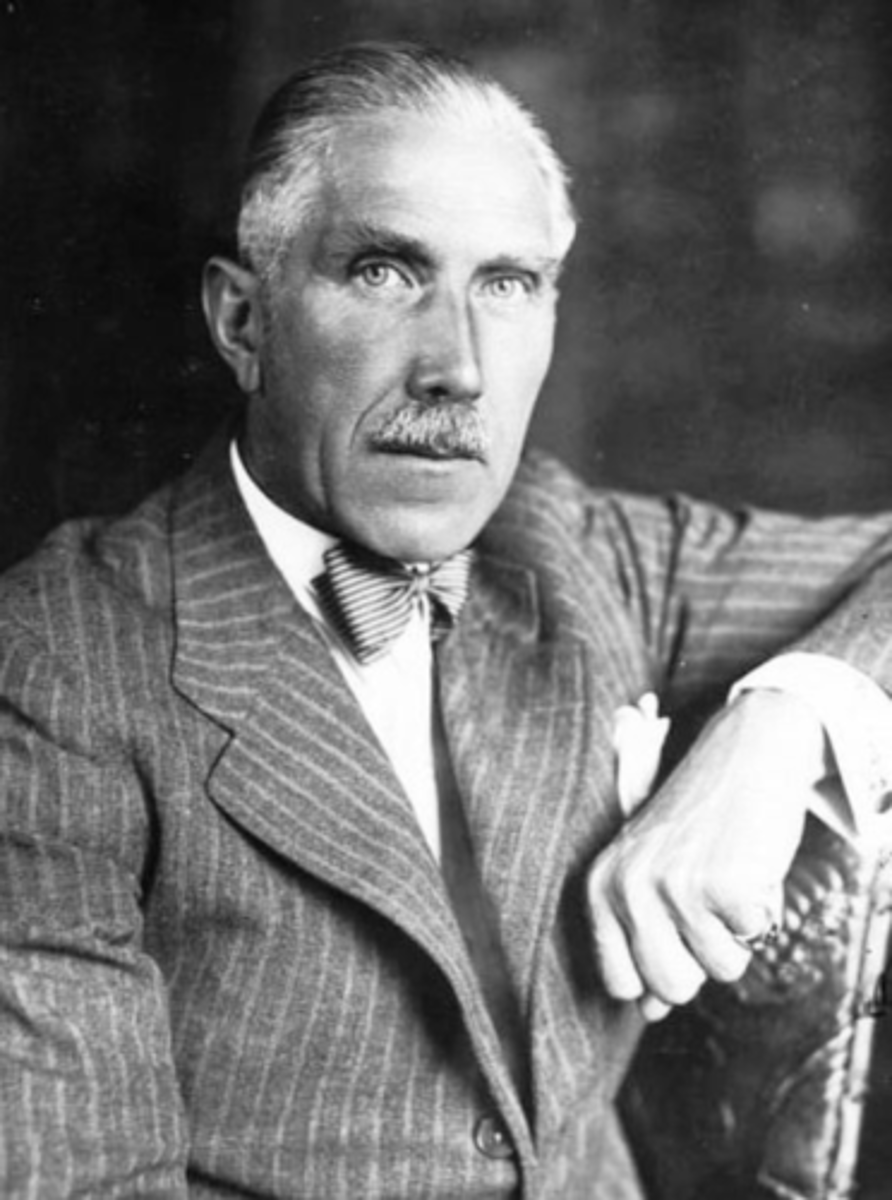
Gregor Strasser
Leading figure in the Nazis
Main critic of Hitler
Used by Schleicher to try and split the Nazis
Forced to resign by Hitler on 8/12/32 after being offered a place in Schleicher's govt
Killed in the Night of the Long Knives
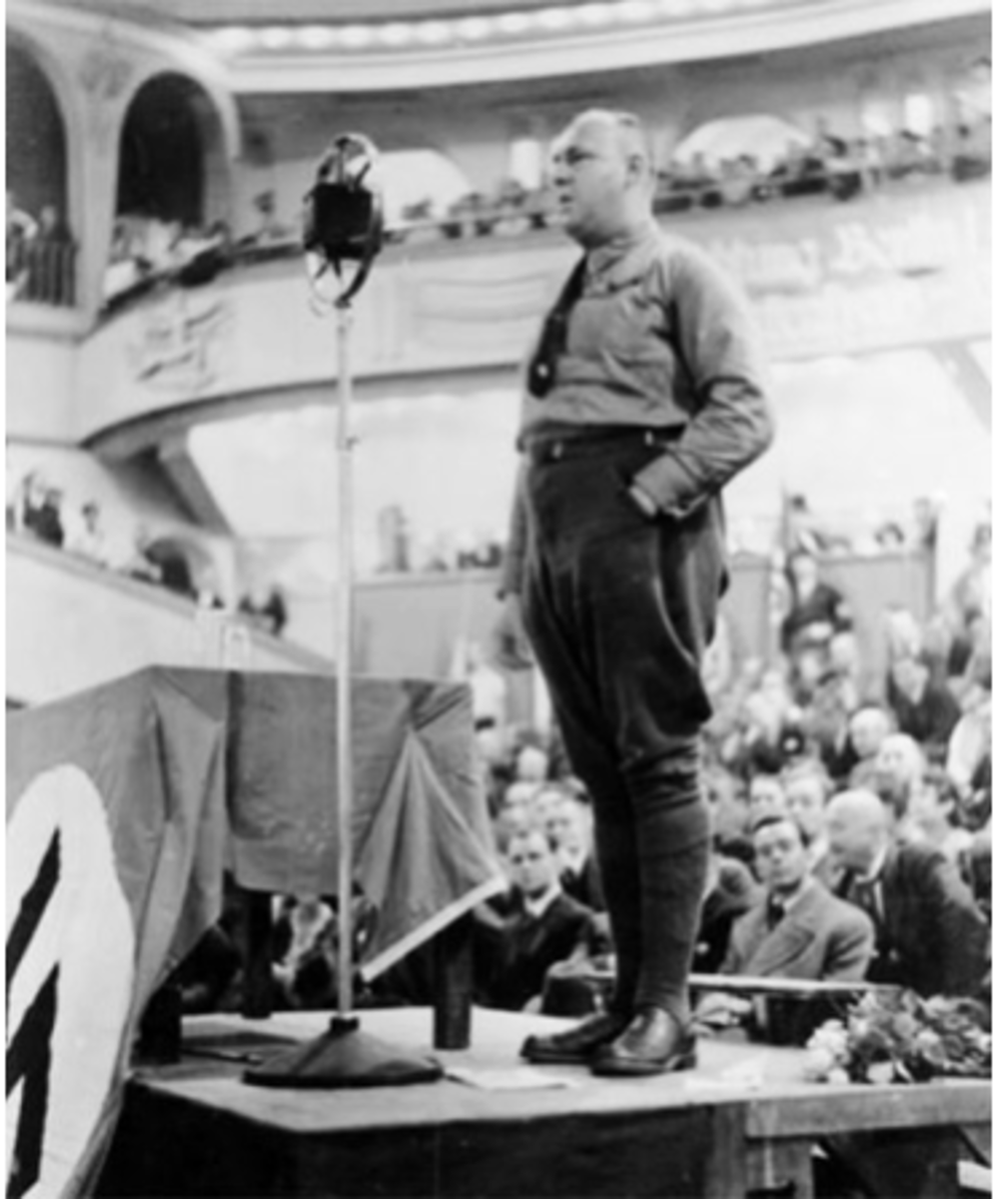
Reasons Schleicher lost power
- Plan to split the Nazis failed when Hitler fired Strasser
- Insulted Hindenburg's son
- Hindenburg grew tired of him
- Agrarian League lobbied against him as he refused to raise tariffs on food imports
- Papen worked against him to get revenge
Adolf Hitler
Chancellor of Germany: 30 January 1933 - 30 April 1945
Head of the Nazi party: 1921-1945
Fuhrer of Germany: 1934-1945
- All or nothing strategy
- Munich Putsch taught him that power could only be obtained through 'legal revolution' not a coup
- Apex of Volksgemeinschaft
- All power stemmed from him
- Bad working habits: late nights watching films, early morning lie-ins
- Careful to avoid association with unpopular policies
- Blamed for policies that led Germany to war
- Avoided details of policy, focused on making the Nazi movement appear dynamic and visionary, using scapegoats and appealing to fear and envy to tell people what they wanted to hear
- Had luck on his side
- Merged the office of President and Chancellor after Hindenburg's death
- Believed economic problems could be solved through hard work and coming together as a people
- Came to believe the Hitler myth, believing that his will was omnipotent
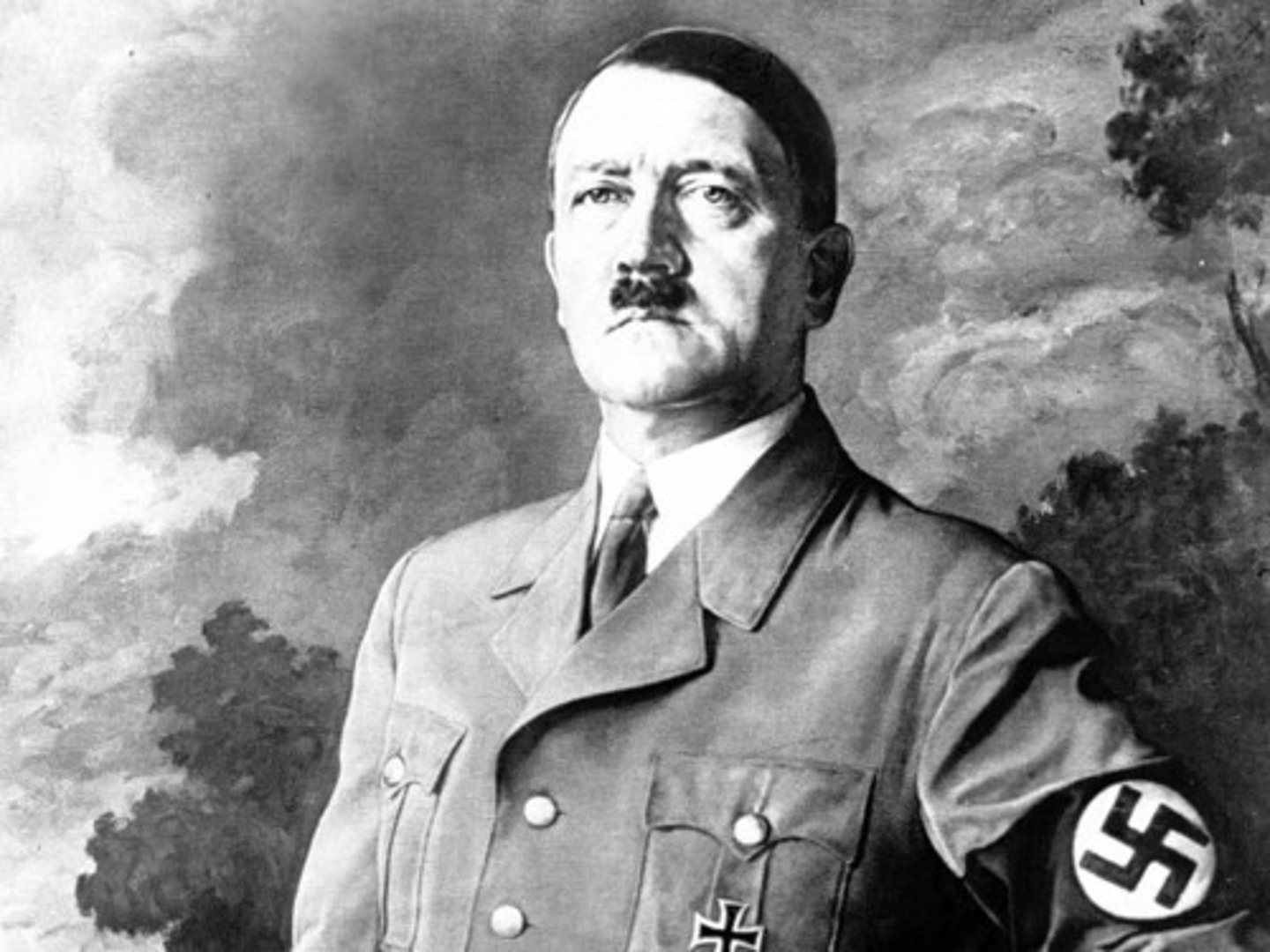
Role of Hitler
- Centre of Nazi power
- Apex of Volksgemeinschaft
- Oratory skills convinced many that he alone was the protector of Germany and could rebuild them as a proud militarised nation
- All or nothing gamble bought Nazis into power
- Won support of elites, army, and people
Day of Potsdam, 1933
21st March
Won support of elites and Hindenburg due to show of German military might and Hitler's grovelling
- Followed on from federal election
- Propaganda
- Intended to show unity of fascism and conservatism
- Designed to legitimise Nazi rules
Nazi's consolidation of power
- Legal revolution to make their ideology law
- Use of terror to scare people into accepting it
- Compromising with Hindenburg, Junkers, military
- Hindenburg did nothing to stop it
- Role of Hitler himself
Legal revolution
A series of laws that Hitler passed while Chancellor to make Nazi power legal
Gave the appearance of legitimacy
- Gleichschaltung
- Gradual to avoid giving Hindenburg a reason to remove him
- Each step was reliant on the one that came before
- Used legal powers of Weimar constitution to destroy it
30/1/33 - Hitler appointed Chancellor
27/2/33 - Reichstag fire
28/2/33 - Reichstag fire decree
5/3/33 - Federal elections
24/3/33 - Enabling act
7/4/33 - Restoration of professional civil service
2/5/33 - Trade Unions banned
10/5/33 - DAF founded
14/7/33 - Law against formation of new parties
1/12/33 - Law to ensure unity of party and state
November 1933 - Uni lecturers had to sign declaration to support Hitler and join Nazi association
30/1/34 - Reconstruction of the State
2/8/34 - Hindenburg dies. Army swears allegiance to Hitler
- KPD banned, teachers and uni lecturers had to join Nazi organisations
Gleichschaltung
Coordination and consolidation of all German institutions under Nazi control and conformity with Nazi ideals
Decree for the Protection of the People and the State, 1933
More commonly known as the Reichstag fire decree
Passed in February, barely a month after Hitler was made Chancellor
- Passed 28th February 1933
- Suspended constitutional rights
- Increased powers of arrest, allowed 'political prisoners' to be held indefinitely
- KPD banned, thousands of communists arrested
- Allowed imprisonment without trial
- SA and SS appointed as auxiliary policemen, given weapons and free reign
In effect throughout the Third Reich
Banned civil liberties, allowing the Nazis to arrest whoever they wanted without reason and without trial
Reichstag fire
27th February 1933
Probably started by a Dutch Communist, some theories that the Nazis started it
- Hitler used it as proof that Germany was under threat from foreign threats
- Hitler used it to convince Hindenburg to grant him emergency powers to arrest anyone he wanted
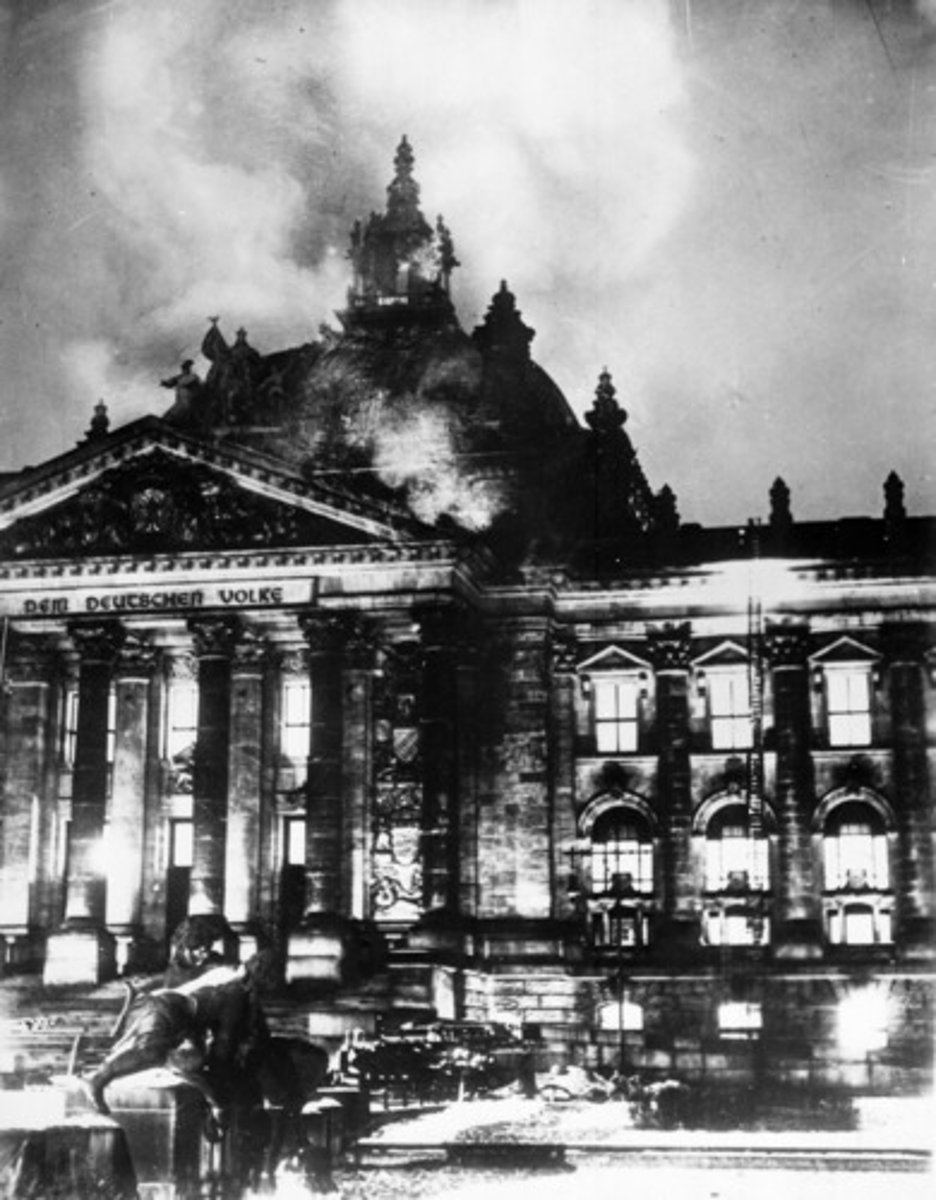
Enabling act, 1933
Passed by 441 votes to 94. Supported by the DNVP and the Centre (gave support after the Concordat). KPD and 26 SPD deputies were already in jail
- Passed 24th March 1933
- Allowed Hitler to rule by decree for 4 years (never repealed)
- Removed democratic accountability
- Foundation of 1-party system
- Allowed the government to pass laws without consulting the Reichstag
- SA and SS officers lined Reichstag, scaring deputies into supporting it
- Removed the federal system, consolidating power in Berlin and away from the states
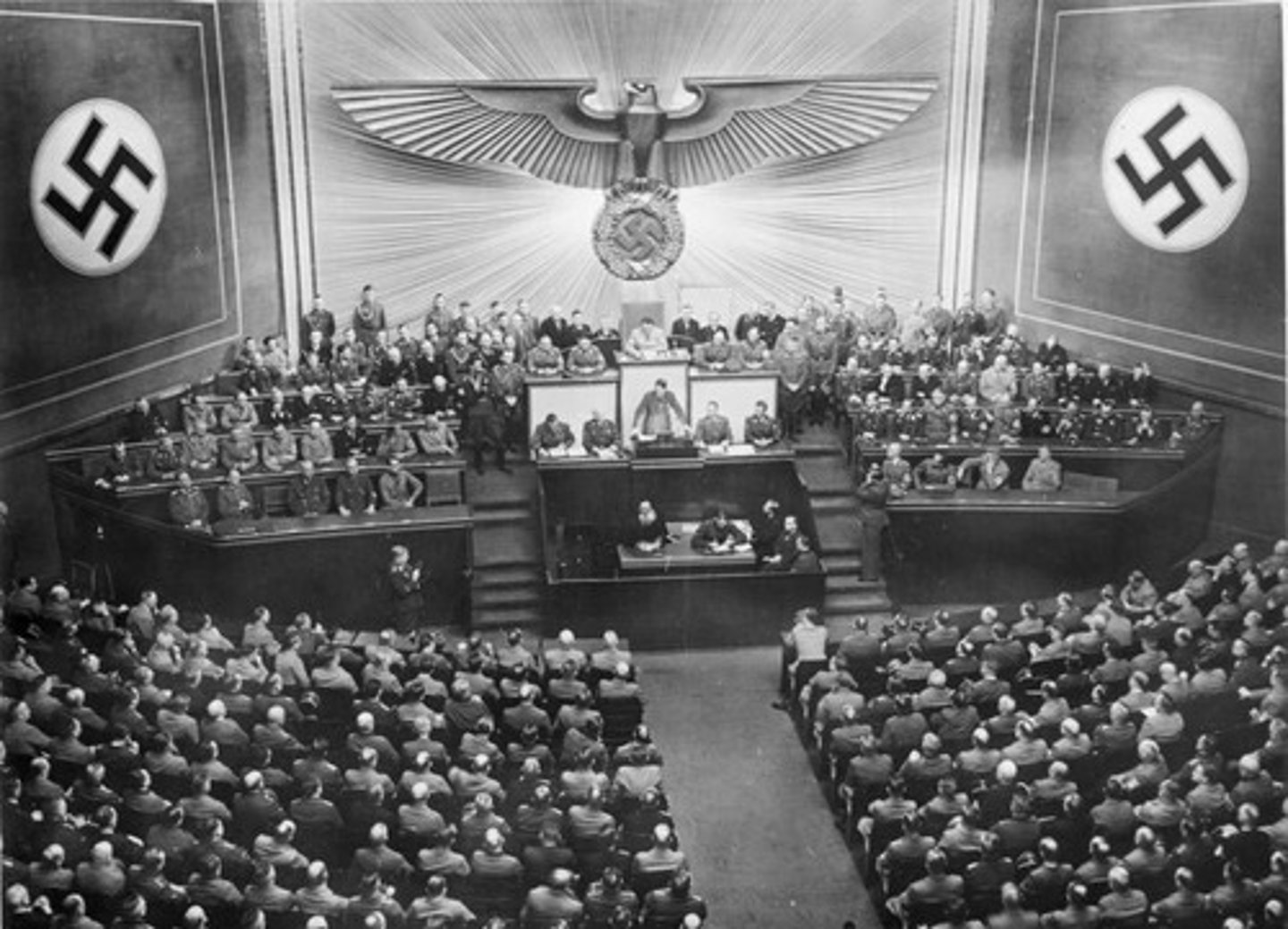
1933 election
5th March
Nazi Party - 288 seats
SPD - 120 seats
KPD - 81 seats (all deputies were arrested and never took their seats)
Centre - 73 seats
Didn't give Nazis the two-thirds majority to amend the constitution
Article 48
The part of the Weimar Constitution that gave the President the right to rule by decree during emergency situations
- Intended to safeguard Germany from threats to democracy
- Enabling act destroyed it and made democracy the enemy
- Critical in giving Hitler the power to destroy Weimar
Law against the Formation of New Parties, 1933
Passed 14th July
- Banned organisation of non-Nazi parties
- Formally established one-party system
- Made voting redundant
- Removed democracy, franchise, proportional representation
Law for the Reconstruction of the State, 1934
Passed 30th January
- Dissolved state assemblies, replacing them with Nazi-appointed Reich governors
Law for the Restoration of the Professional Civil Service, 1933
Passed 7th April
- Forced non-Aryans to resign from the civil service
- Forced out Jew and other 'opponents'
- Purged them from civil service, administration, schools, courts, universities
National Socialist Teachers League
Established in 1929
All teachers had to join it after the Naxis came to power
Law to ensure the unity of Party and State, 1933
Passed December 1st
- Formally merged the Nazi party and Reich government
- Members of Nazi party officially made members of the government
- Solidified one-party system
All or nothing
Hitler's strategy to be made Chancellor
Refusal to accept any position other than Chancellor
Continued to harass Hindenburg about being made Chancellor
Hitler's strengths (1933-1934)
- Chancellor was 2nd most powerful office in the Reich
- Ministers of the Interior for Germany and Prussia were Nazi, giving huge influence
- Used SA and SS to crush opponents
- Defence Minister was sympathetic
- Goebbels propaganda campaign
- Support of right-wing Junkers
Hermann Goering
Leading member of the Nazi party
President of the Reichstag, Minister President of Prussia, Minister of Economics, Plenipotentiary for the 4 year plan, Head of the Luftwaffe
- Part of the Munich Putsch
- 1 of 3 Nazis in Hitler's 1933 cabinet
- Purged Prussian government and police of potential opponents, appointed Nazis in their place
- Created the military-industrial complex
- Forged close links with big businesses (e.g. I.G Farben)
- Became very rich
- Convicted and sentenced to death in the Nuremberg trials, committed suicide instead
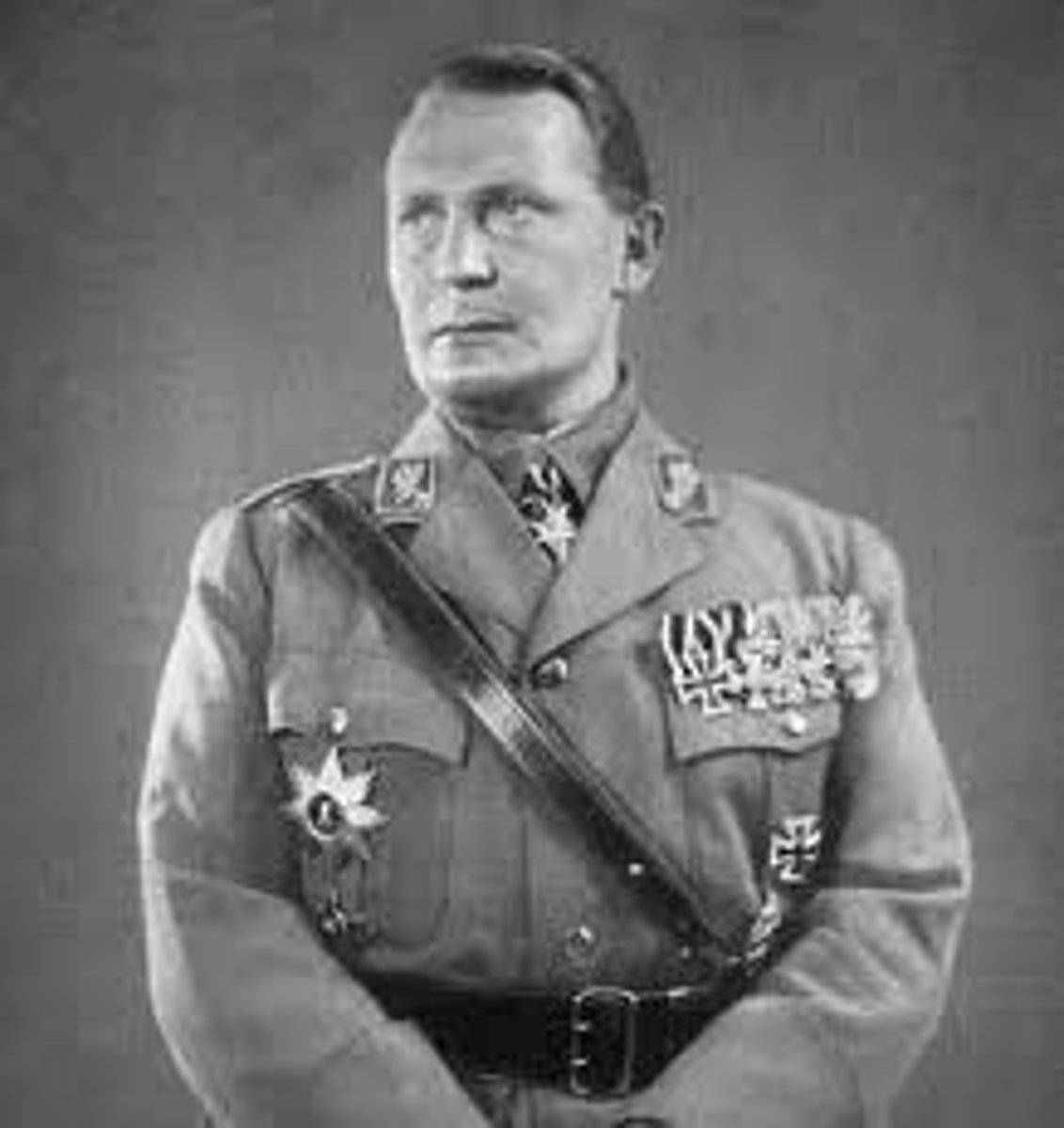
Wilhelm Frick
Leading member of the Nazi party
Reichsminister of the Interior 1933-1943
- Part of the Munich Putsch
- 1 of 3 Nazis in Hitler's 1933 cabinet
- Drew up plans for the March elections
- Convicted and executed in the Nuremberg trials
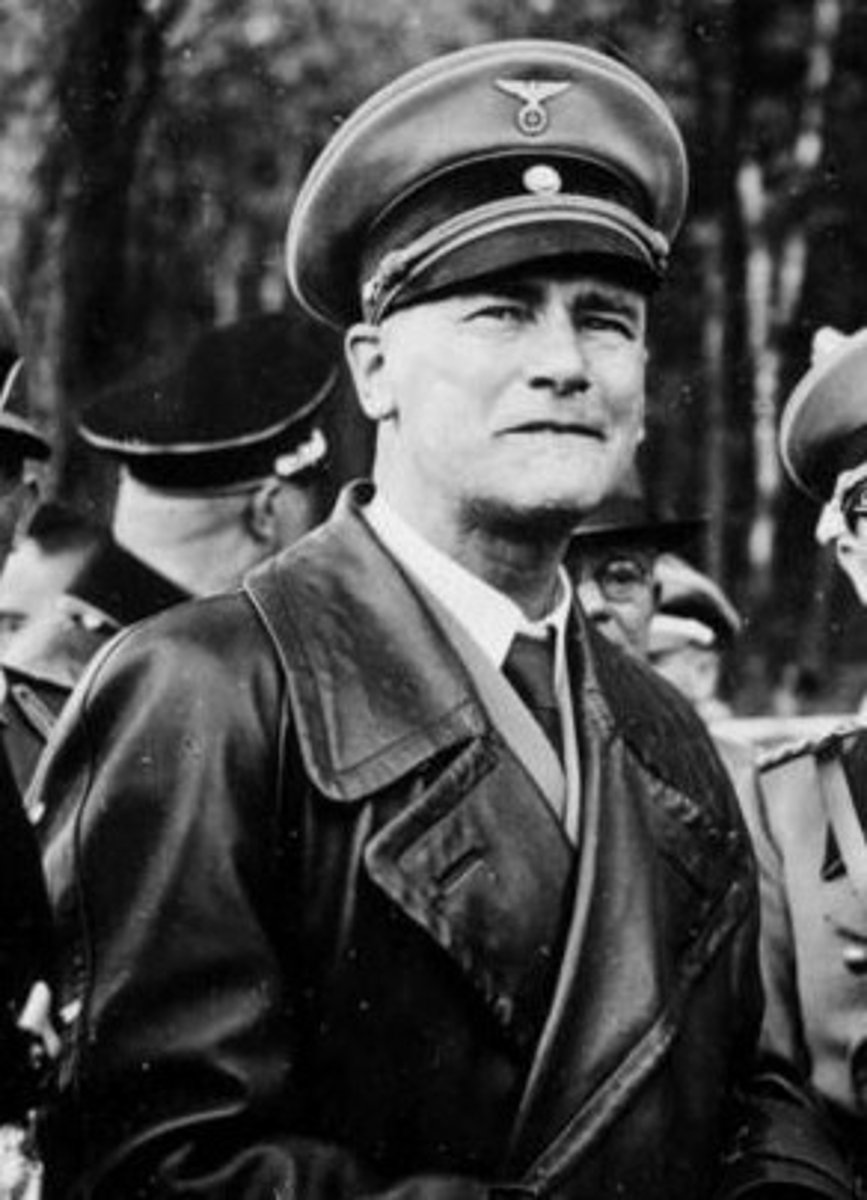
Werner von Blomberg
Chief of the General Staff (Weimar), Minister of Defence (Weimar), Reichsminister for war (Nazis)
- Nazi sympathiser in Hitler's 1933 cabinet
- Ensured the army didn't stop Nazi terror attacks
- Fell from power and spent the war in obscurity
Threats to Hitler
- Hindenburg (died)
- Military (won over)
- Catholics (concordat)
- SA (eliminated)
- Elites (won over)
Hitler's compromises
- Ignored socialist parts of the 25-point programme to appease army
- Night of the Long Knives to appease army
- Ignored anti-capitalist parts of the 25-point programme to appease industrialists
- Concordat to appease Catholics
Concordat
Agreement between Pope Pius XI and Hitler to avoid alienating Catholic church
- Ensured that the Nazis wouldn't infringe on the running of the Catholic church or its right to be independent
- Ensured the loyalty of the Zentrum party in passing the Enabling act
- Fell apart by 1937
Paul von Hindenburg
President of Germany (1925-1934)
Appointed Hitler as Chancellor in 1933
- Role as President meant he was central to the power structure
- One of the few who had the power to remove Hitler
- Had loyalty of army, giving him loyalty of public (militarist culture)
- National hero, living legend
- Sticked to constitution as he believed in duty
- Authoritarian, anti-democratic, hated Nazis (especially after 1932 presidential elections)
- Easily manipulated and flattered by Hitler's grovelling
- Old, tired and exhausted by 1930. Hated additional responsibilities and grateful that Hitler took on his responsibilities
- Turned a blind eye to the Nazis and did nothing to stop them
- Nazis probably wouldn't have taken over without him
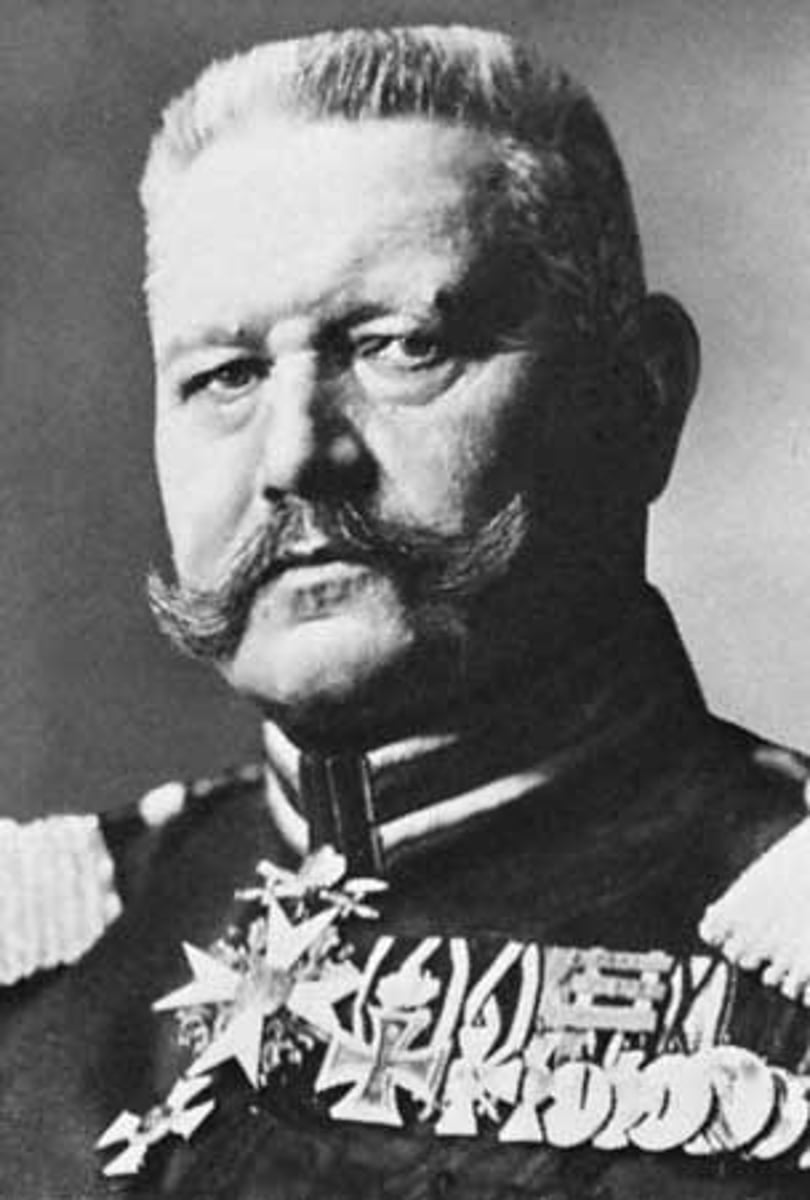
Hindenburg wasn't at fault
Hindenburg shouldn't be blamed for the Nazis rise to power
He was old and tiring, wanted to retire
- Glad that Hitler took away from his responsibilities
- Hated the Nazis
- Easily manipulated
- Had no choice but to appoint Hitler Chancellor
Hindenburg was at fault
Hindenburg should be blamed for the Nazis rise to power
- Appointed Hitler as Chancellor
- Did nothing to stop Hitler
- Ran at 1932 Presidential election, showing he wasn't as tired as people say
- Social and political orientation made him predisposed to authoritarianism
- Nazi dictatorship likely wouldn't have occurred without him
Role of elites
Weimar failed to curb their power, so they destroyed Weimar
- Gave Hitler power
- Thought they could control him and use him to return to authoritarianism
- Liked Hitler's authoritarianism, anti-semitism, nationalism
- Hitler deliberately compromised with them
Fuhrerprinzip
The Fuhrer principle
The belief that Hitler alone possessed all the power and authority and that he was the Supreme Leader of a 'new' Germany
Joseph Goebbels
Leading member of the Nazi party
Propaganda minister (1933-1945), Plenipotentiary for total war (1944-1945), Chancellor (for a day, 1945)
- Created the Hitler myth
- Dominated media
- Voice of regime next to Hitler
- Delivered the Total War speech demanding absolute self-sacrifice from the German people
- Committed suicide before being captured
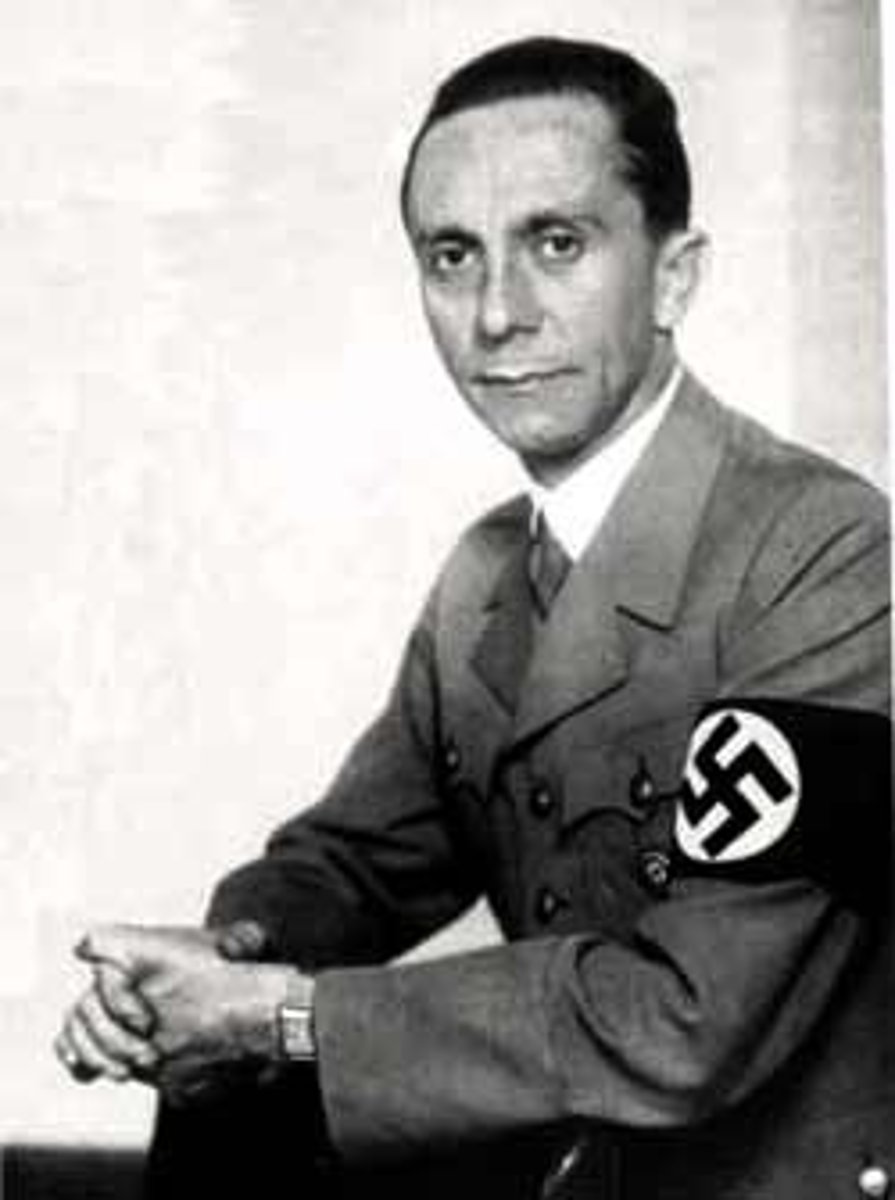
Hitler myth
Created by Goebbels
Portrayed Hitler as both an ordinary man and a superhero. A cult of personality
- Ensured obedience to Hitler's will from the German people
- Provided justification for the Nazis by claiming that he was the sole protector of the German nation
- Satisfied people's emotional desires for a strong leader
- Used to justify the Night of the Long Knives as he was the 'Supreme Judge of the German People' in a time of national crisis
Hitler's popularity
- Many were still sceptical when he came to power
- Hitler myth increased this
- Peaked in 1940 after the defeat of Norway, France, Low Countries
- Decreased after Stalingrad when the war started to against Germany, although many still clung to their faith in him
Effects of the Hitler myth
- Increased Hitler's popularity
- Satisfied Germany's emotional need for a strong leader
- Gave credibility to authoritarianism
Volksgemeinschaft
National Community
Idea at the heart of the Nazi state
Put common good above personal advancement, dehumanising
- Classless, based on race
- By definition it wasn't multi-cultural, very exclusive
Racial meritocracy
- The best (the most loyal) would rise to lead the people
- Members were expected to be genetically healthy, socially efficient, politically & ideologically reliable
-Ein Reich, Ein Volk, Ein Fuhrer
Ein Reich, Ein Volk, Ein Fuhrer
One Nation, One People, One Leader
Motto of volksgemeinschaft
Required the people to give unquestioning obedience to Hitler
Social darwinism
The idea that some communities are objectively superior to others and therefore have a right to dominate over and oppress the weak
Basis of Nazis ideology
Used eugenics to justify the superiority of the Aryan race
Nazi ideology
Often contradictory and inchorent. Routinely sacrificed for the sake of practicality (economic objectives like Autarky always took precedence)
Fascism - authoritarianism cult-like govt
Volksgemeinschaft - National community, importance of common good, classless, dehumanising
Führerprincip - Supremacy of 1 leader
Social darwinism - Strong kill the weak
Blut und Boden - Blood and soil (link German people to agriculture)
Cult of Motherhood - Women's role is to make kids
- Anti-Communist
- Anti-modern
- Anti-democratic
- Anti-feminist
- Glorified struggle, violence and victory over 'the weak'
Presented as a movement, not a party
Designed to appeal to traditional German values
Vague and 'catch-all' to appeal to a wide range of patriotic Germans who wanted an end to the economic and social humiliation of WW1
Eugenics
The pseudo-scientific justification for social darwinism
Advocated that the purity of races can be preserved through selective breeding and purging of the 'impure'
- Had a strong body of support across Western Europe and USA
- Medical advancements meant disabled people lived longer
- Argued that criminality, alcoholism, homosexuality, prostitution occurred due to genetic impurity
'Genetically impure':
- Mentally disabled
- Physically disabled
- Baltic people
- Jews
- LGBT
- Black people
- Romani
Blut und Boden
Blood and soil
The part of Nazi ideology that promoted an intimate relationship between the blood of the German people and the soil of Germany
Cult of motherhood
The Nazi belief that a woman's role was of a wife and mother
Honour Cross of German Motherhood given to those with 4 or more children
Contradictions of Nazi ideology
Appealed to workers as it promised an end to class divisions and social privilege, but Hitler courted the social elite by promising to block Communism
Established the farmer peasant as the 'most pure German' and promised to protect their interests, but prioritised the military-industrial complex at the farmer's expense
Made Judaism synonymous with communism, but painted Jews as capitalists
Promised a classless society but established a strict social hierarchy of Fuhrer, Aryan, non-Aryan
Promoted anti-industrialism and 'returning to the land' but built a massive military-industrial complex
Aryan
The 'purebred' blue-eyed blond-haired German who was genetically superior to all others
The idealised version of a German family, especially farmers
The upholder of traditional moral values
Empty rhetoric
Nazi govt
Hitler was at the centre of everything
- Messy and incoherent
- Organisations working in parallel, or with contradictory orders
- A few individuals (Goering, Himmler, Goebbels, Bormann, etc) formed massive power bases
- No clear chain of command
- Massive competition between institutions for influence and resources
- Party bureaucracies worked in parallel with state ministries
- Everyone tried to work towards the Fuhrer
Goering - Economics & Luftwaffe
Himmler - Homeland security and the terror state
Goebbels - Propaganda
Bormann - Party Chancellery and Hitler's secretary
Martin Bormann
Leading figure of the Nazi party
Head of the Nazi party Chancellery, Secretary to the Fuhrer
- Least visible but the most powerful of the Nazis by 1942
- Controlled appointments, promotions, who Hitler met with
- Recipient of Hitler's total trust
- Master or political intrigue and in-fighting
- Known as the 'Brown eminence'
- Virtually second in the party to Hitler
- Committed suicide in 1945, posthumously tried in the Nuremberg trials & found guilty of war crimes
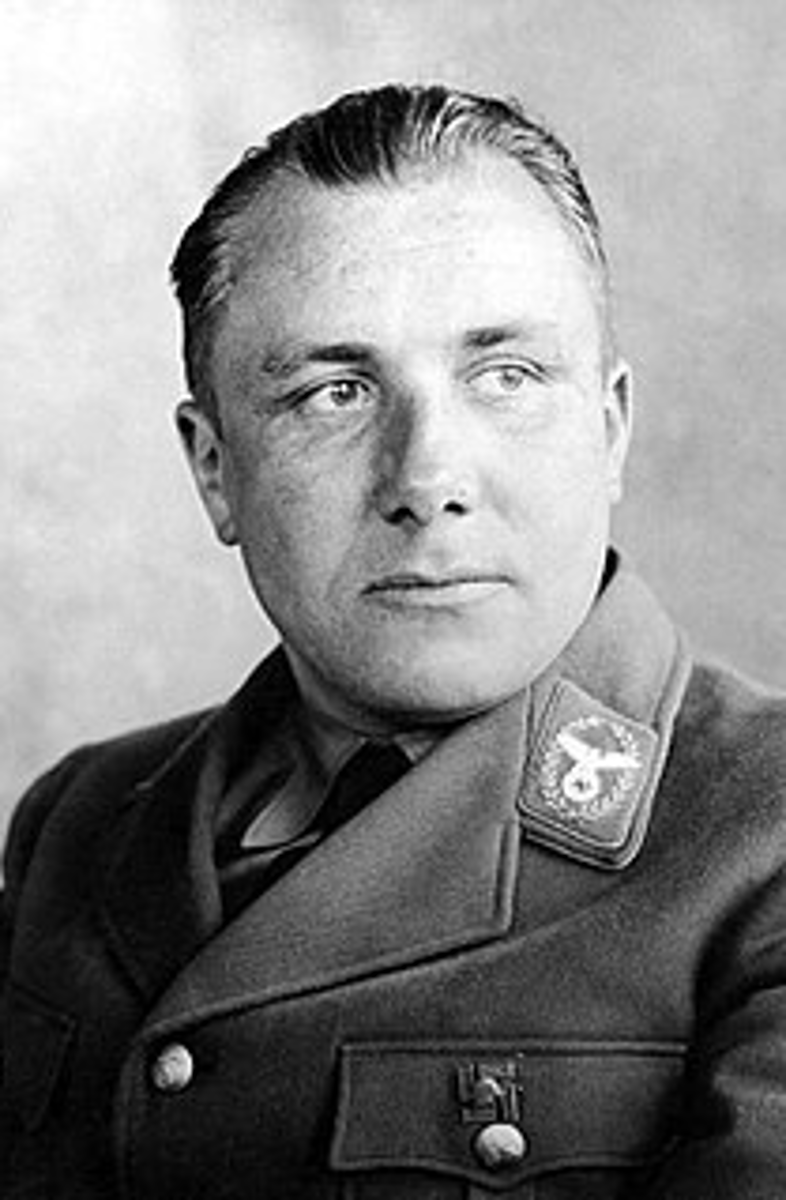
Heinrich Himmler
Leading member of the Nazi party
Head of the RSHD, Head of the SS, Minister of the Interior
- Power bloc focused around the security apparatus
- Reshaped German society and captured territory to fit Nazi racial-ideological goals
- Orchestrated the Holocaust and concentration camp system
- Captured by the allies, committed suicide by cyanide
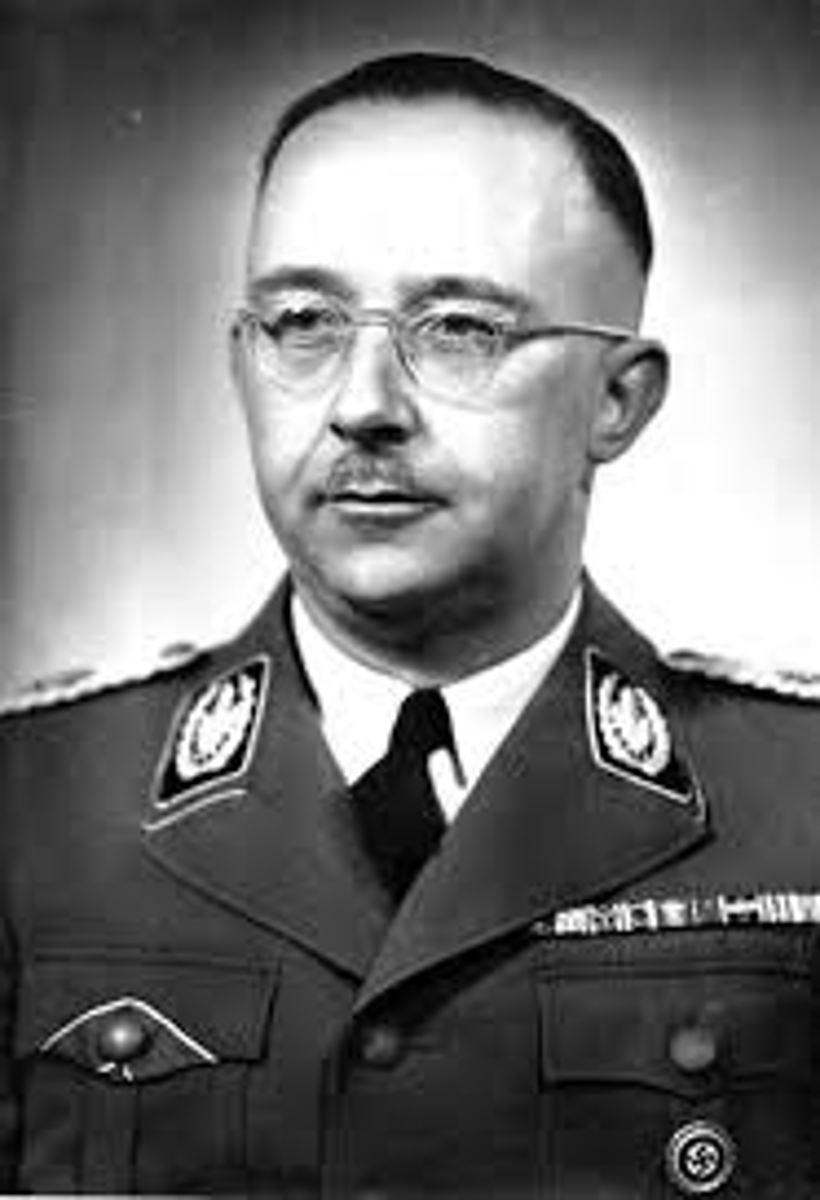
Concentration camp system
Started as overflow prisons for those arrested in the early days of Nazi rule
25 purpose camps and 1200 sub-camps
Modelled on the camp near Dachau, Munich which was set up in 1933
Terror state
The Nazi's way of keeping order amongst the populace
A series of organisations that monitored every part of life and kept everyone in line
- Gestapo
- SS
- SD
- RSHD
- Orpo & Sipo
Not 'hampered by formal barriers'
- No legal restrictions as it exercised the 'Fuhrer's will'
Unrestrained and unlimited
- Critical in the consolidation of power as they created 'paralysing fear'
- Elites failed to foresee the level of violence it would cause
- Jews, journalists, political opponents, communists, socialists, artists all attacked in the street
- Silenced opposition
- Arrested 26,000 in the 6 weeks after Hitler became Chancellor
26,000
Number of people arrested in the first 6 weeks after Hitler became Chancellor
Gestapo
Prussian Secret State Police
Created on 26th April 1933 under command of Dufold Diels
Absorbed into the SS in April 1934
- Given autonomy over the law
- Able to target any ideological opponents
- Feared as an instrument of terror, but also very popular
- Relied on denunciations from public to make arrests
- Myth of an officer on every street
- Prussian branch of the Terror state
- 32,000 employees (1944)
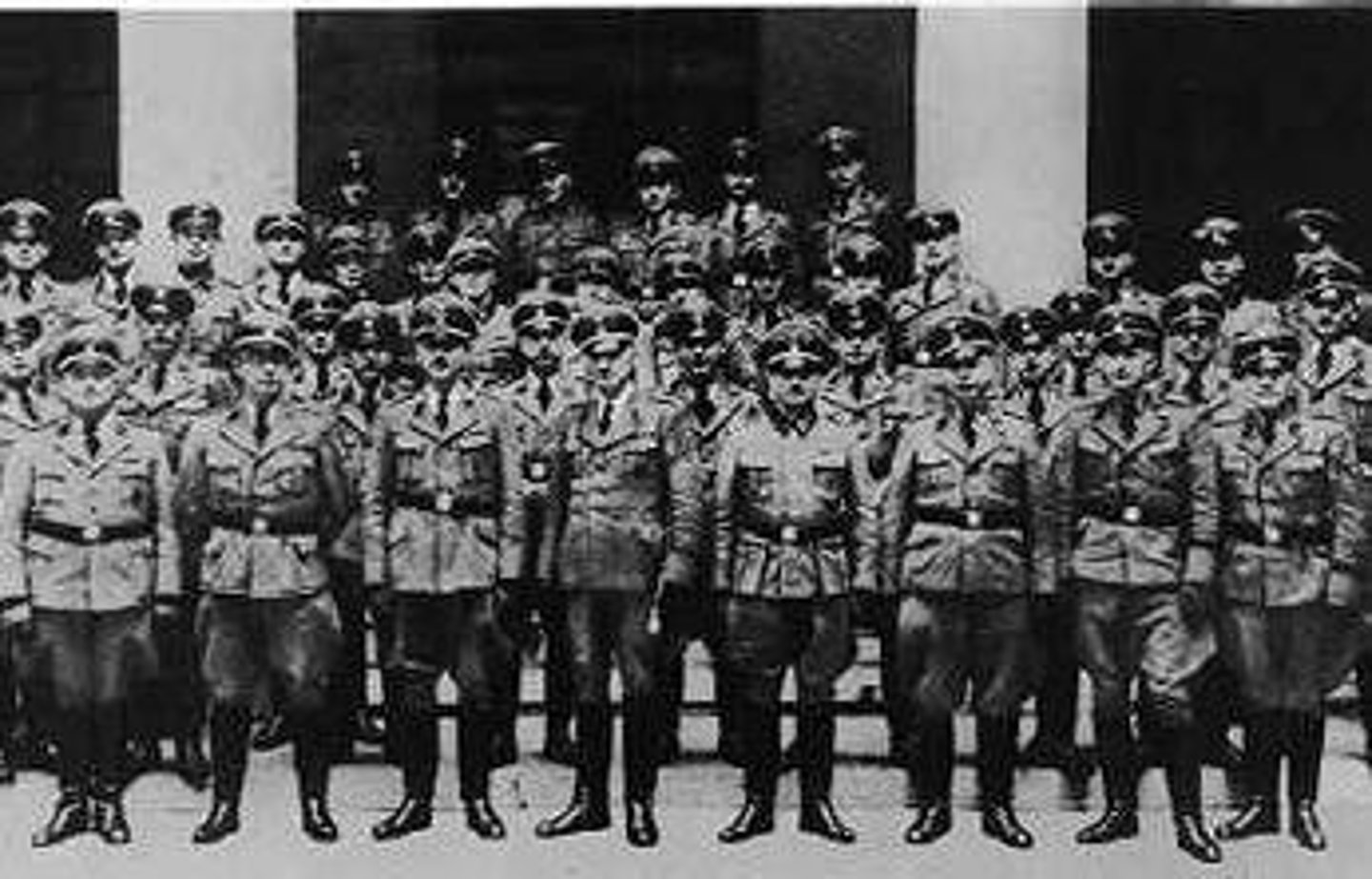
SS
Originally a smaller part of the SA that served as Hitler's bodyguard
- Became an independent party organisation after its role in the Night of the Long Knives
- Headed by Himmler
- Responsible for the Holocaust
- Death's Head units guarded the concentration camps
- Waffen-SS worked alongside the regular army
- Primary goal was to pursue ideological and racial objectives of the Nazi state
- Einsatzgruppen carried out killing expeditions in occupied Europe, slaughtering tens of thousands of Jews, Slavs, and Communists
- Training required unquestioning obedience, contempt for the inferior, arrogance towards non-members
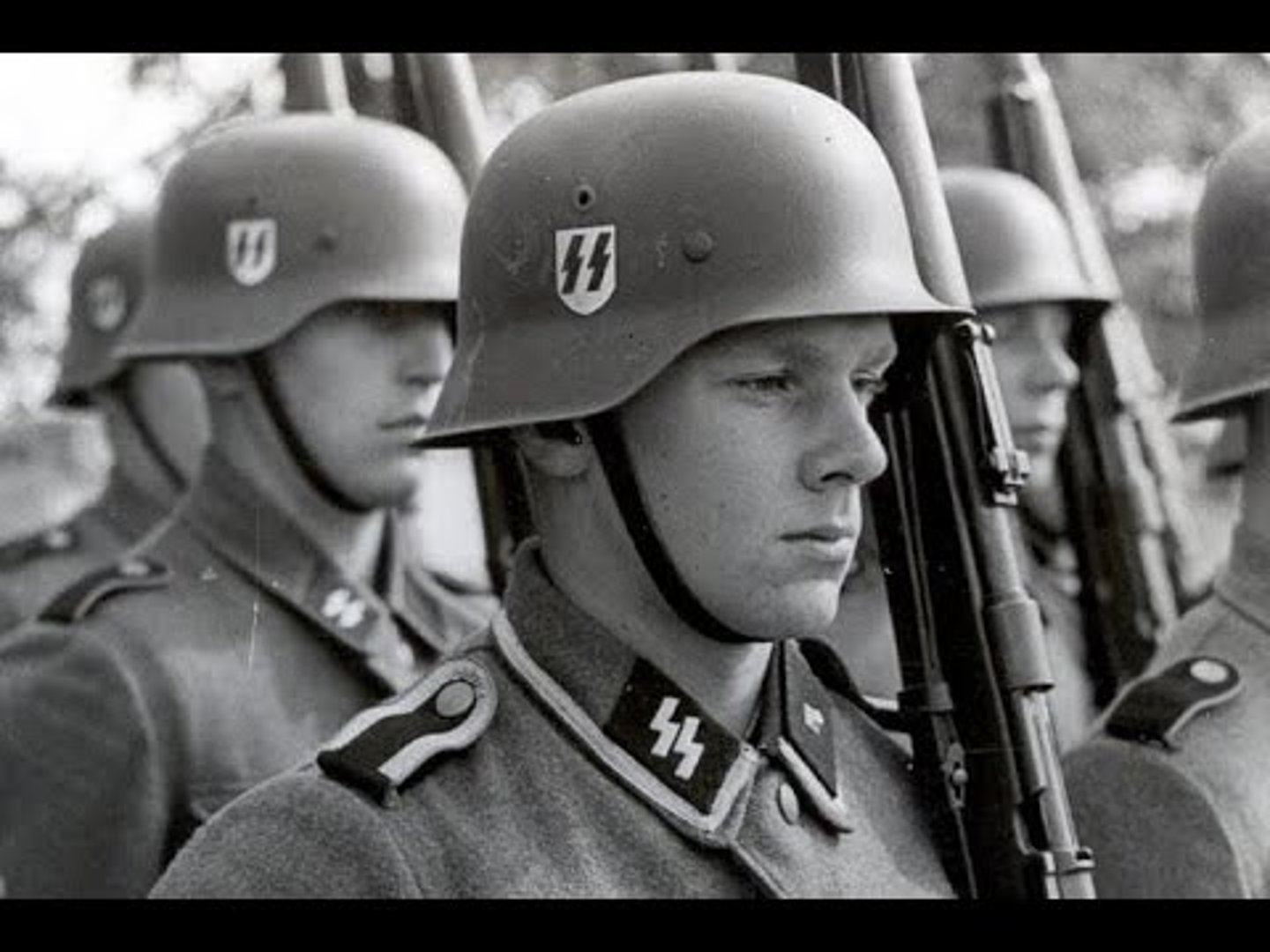
Death's Head
Units of the SS tasked with guarding the concentration camps
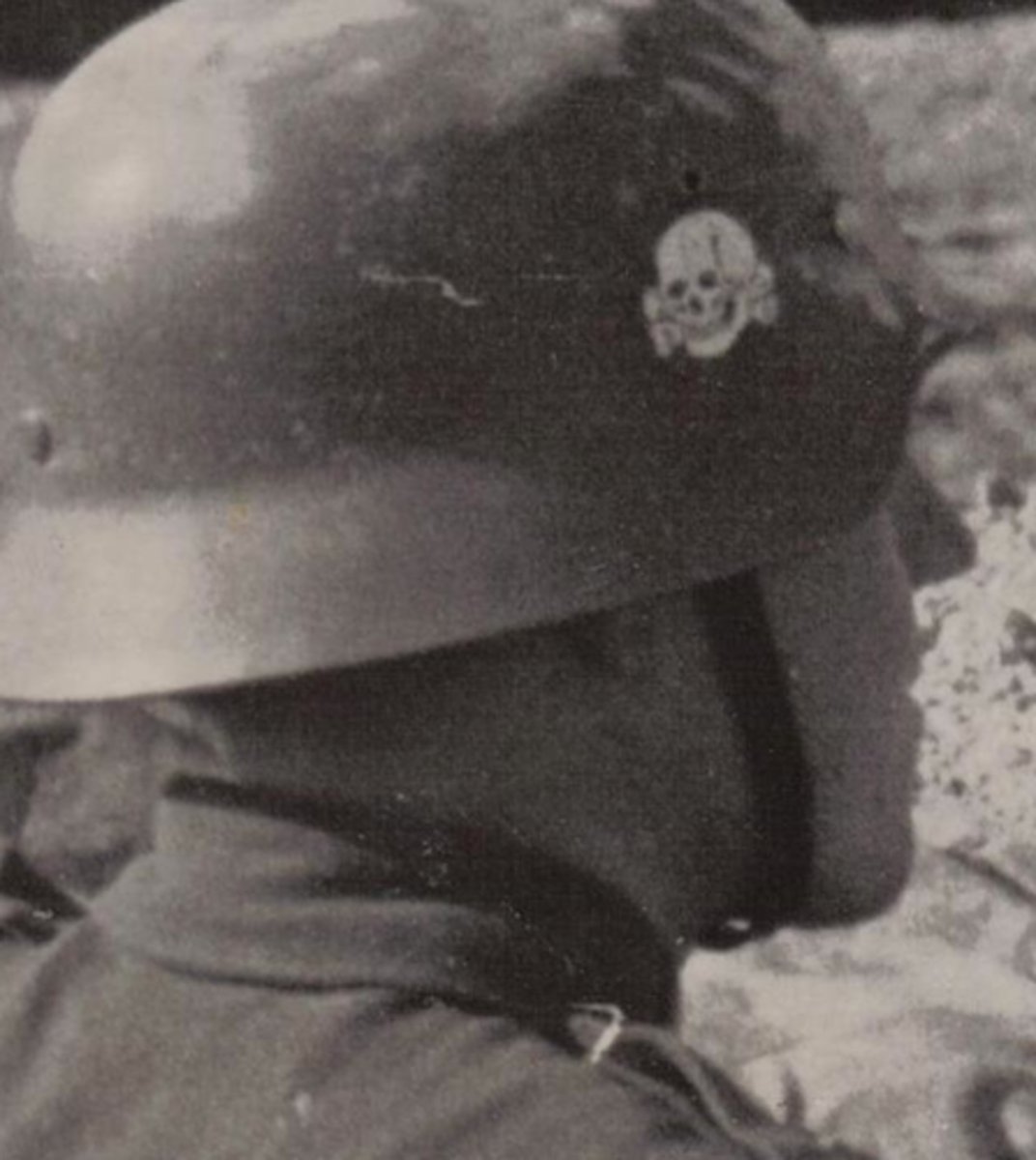
Waffen-SS
Units of the SS that fought alongside the German Army
Considered them a military elite and 'political soldiers'
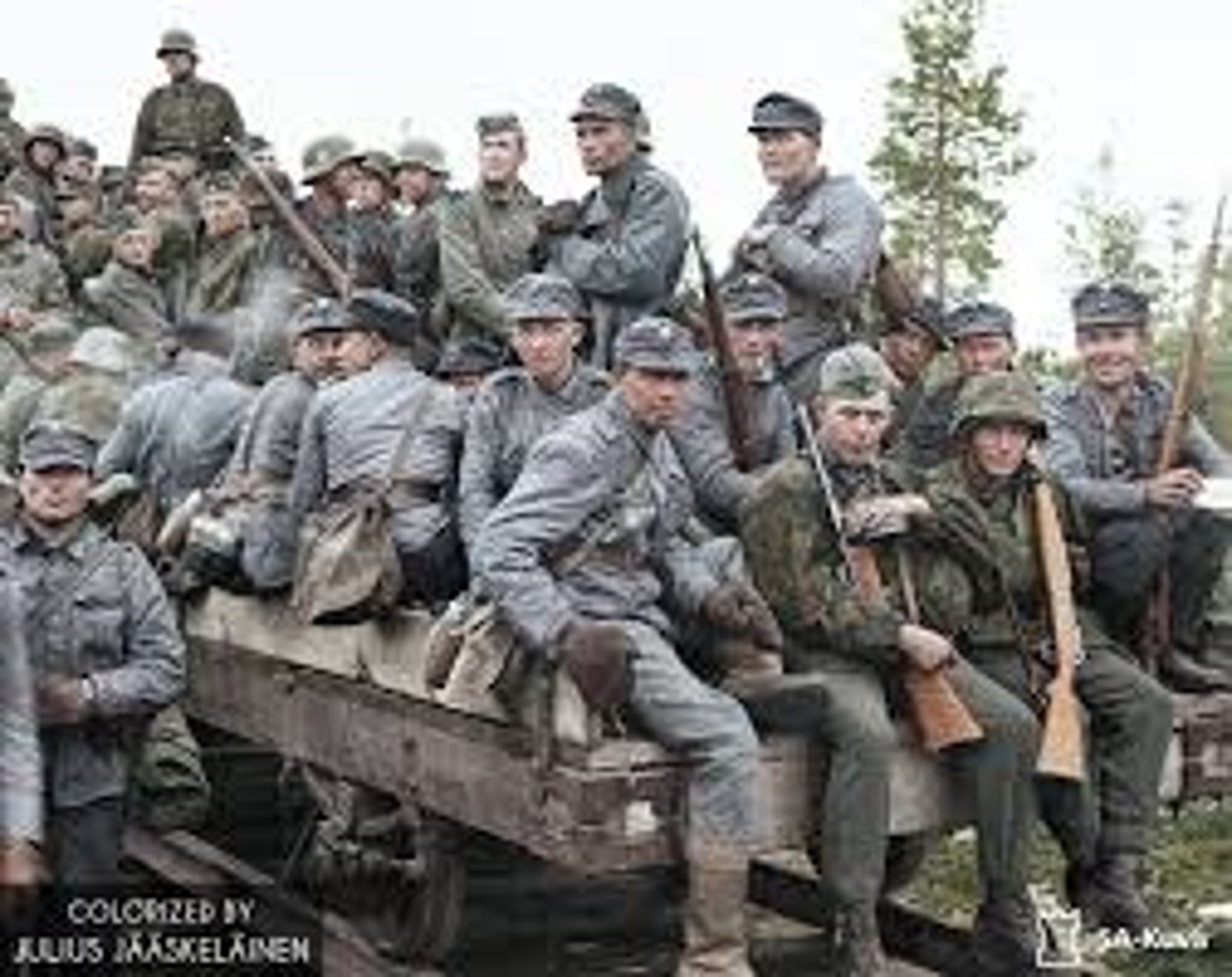
SD
Security service of the SS
Headed by Reinhard Heydrich (1931-1942)
Headed by Ernst Kaltenbrunner (1943-1945)
Gathered intelligence and surveillance of ideological opponents to the Nazis
Reich Security Main Office (RSHD)
Combination of the security agencies in Nazi Germany
Formed in 1939 by combining the Gestapo, SD, and Criminal Investigation Police (CRIPO)
Headed by Reinhard Heydrich (1939-1942)
Headed by Ernst Kaltenbrunner (1943-1945)
50,000 staff in 1944
- Controlled Nazi extermination policy
- Organised deportation of Jews from Europe to concentration camps
- Tasked with maintaining the racial purity of the Volk
Night of the Long Knives, 1934
30th June
May 1934 - Army declared that if Hitler didn't remove the SA then he would be removed and Hindenburg would declare martial law
- Unleashed the SS against the SA and other enemies
- Won Hitler the support of the army and elites
- Killed 85-1000
- Removed threats to Hitler's power
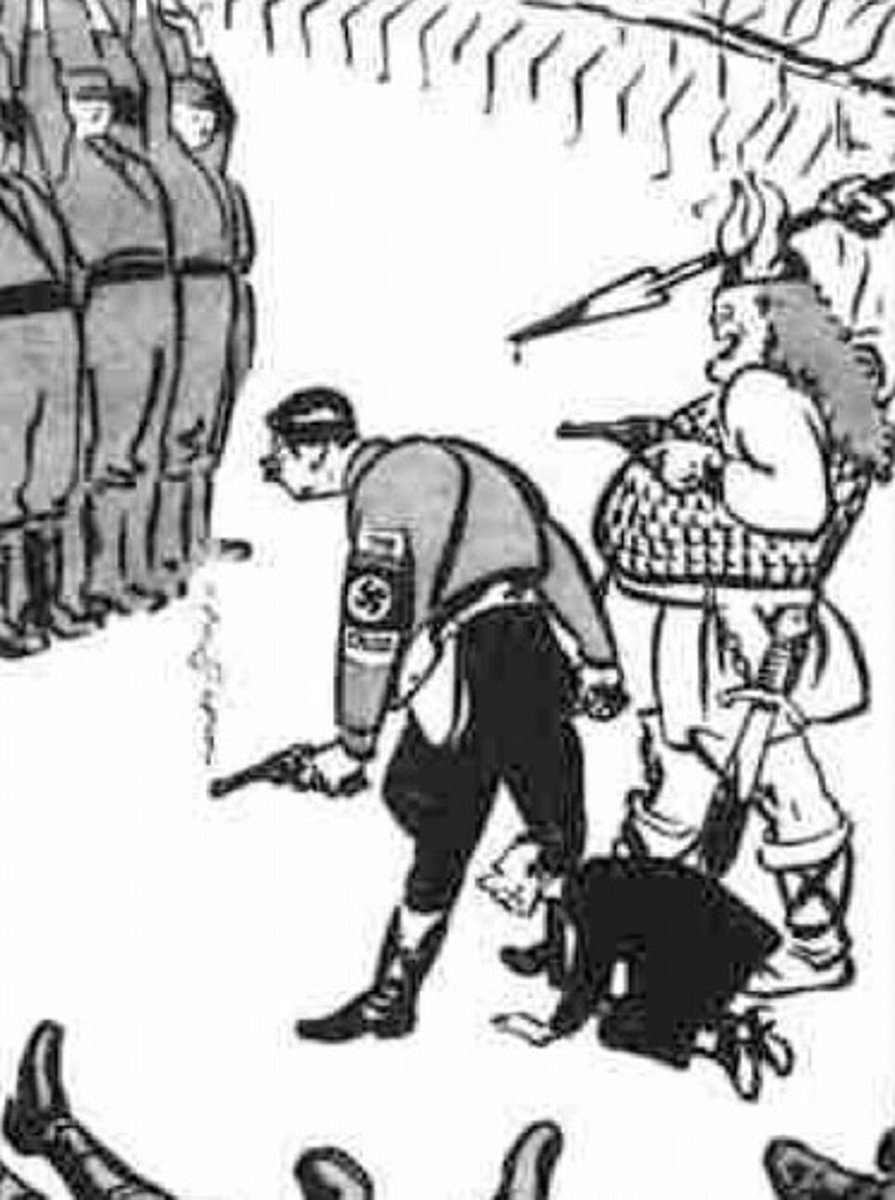
Victims of the Night of the Long Knives
- Kurt von Schleicher and his wife
- Gregor Strasser
- Gustav Ritter von Kahr
- SA generals
- Ernst Rohm
- Some Reichstag members
- Franz von Papen placed under house arrest
85 confirmed dead. Estimates up to 1000
Reinhard Heydrich
Leading member of Nazi party
Protege of Himmler
- Head of the RSHD, Head of the Gestapo, Head of the SD
- Often considered 'the darkest figure in the Nazi regime'
- Key role in the Holocaust
- Assassinated in 1942
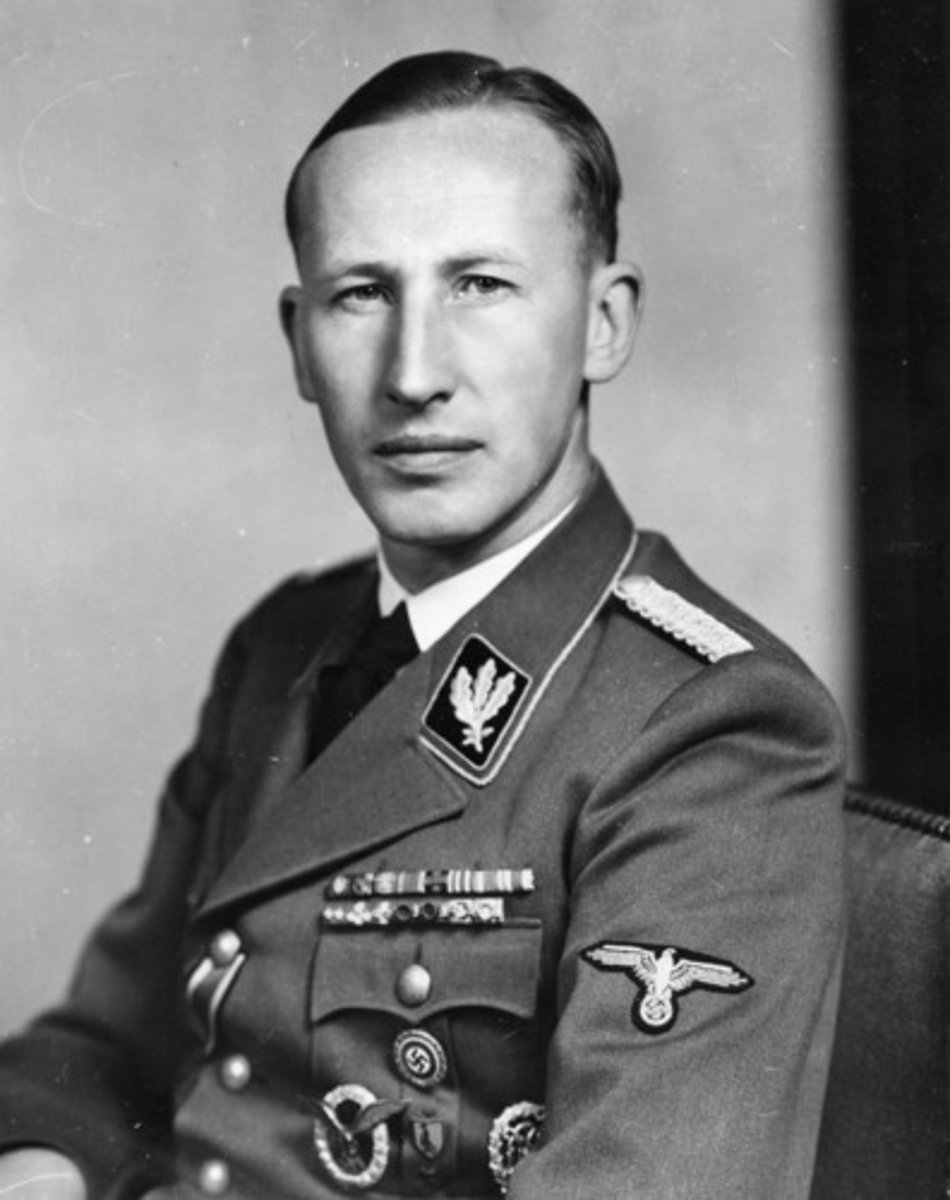
Protective custody
One of the Nazis most notorious means of oppression
Used by the Gestapo to detain anyone considered an enemy of the state and send them to concentration camps
May 1943 - Gestapo can send anyone to the concentration camps without issuing an order
Repression
- Individuals had no protection under the law
- No civil liberties
- The Church and the army - who the Nazis expected would the biggest resistors - retained a degree of autonomy
- Most citizens retreated into private life and kept their heads down
- More and more 'asocial' groups were herded into concentration camps as time went on
Surveillance
Nazis became obsessed with knowing public opinion
Universal system of spying based on Germans denouncing their fellow Germans
- The reasons for this were often personal and private
Could be:
- Block leaders in flats
- Stewards in factories
- Hitler Youth members in families
Public consensus to Nazis
Military
- Anti-communist & anti-Weimar
- Wanted removal of Versailles treaty and Weimar state
Church
- Protestants supported authoritarianism & traditional family values. German Christians
- Catholic church willing to accept it until the Nazis interfered, but accepted Nazi control by 1939
Middle class
- Main power base of Nazis
- Liked sense of security
- Supported removal of asocials (Jews, LGBT, etc)
- Nazi's played on traditional desires and prejudices
Working class
- Sullen apathy
- KdF was largely popular
- Didn't support SPD or KPD
Youth
- Benefitted from idolisation of the 'leader of tomorrow'
- Amenable to Nazi propaganda
Opposition to the Nazi's
- Few willing to risk consequences of Resistance
- Catholic church willing to accept it until the Nazis interfered, but accepted Nazi control by 1939
- Myth of an undivided, loyal population was created by Nazi propaganda machine
- Some accepted parts of Nazi policy, but not others
- Some held Hitler in high esteem, but resented lower Nazis
- Opposition ranged from place and time
- Relatively little opposition
- Increased after 1943 as the war turned against the Nazis
- Invasion of Russia in 1941 led to resurgence of communist activity, most groups had been broken up by 1943
- Growing absenteeism in Hitler Youth
- Some youth formed gangs
- Many elites had doubts
- Individual pastors spoke up
- Civil disobedience such as not doing the Hitler salute, not putting out Swastikas, making anti-Hitler jokes were common
- Depoliticised workers, used threat of losing job to prevent resistance
- Any opposition was seen as a threat
- Even general moaning could lead to arrest
- Terror and repression intensified during war
- SS carried out executions of anyone suspected of being defeatist
Military consensus
- Supported rearmament and removal of the Versailles treaty
- Wanted to defeat Communism
- Supported removing the Weimar state
Military opposition
- Some believed Hitler's foreign policy would lead to destruction
- A few rejected Nazi barbarity
- A few rejected Hitler socially
- General Beck organised resistance and communicated with the allies
- Assassination attempts
- Kreisau Circle
- July 1944 bomb plot
Kreisau Circle
Conservative group led by Helmuth Graf von Moltke. Had contacts with left-wing and military opponents.
Did little more than talk and plan due to divisive membership, fear of discovery, and disagreements over goals
July 1944 bomb plot
Assassination attempt against Hitler by military leaders who saw Hitler as out of touch and leading Germany to ruin or a Soviet takeover
- Failed
- Gestapo arrested 7000 in response
- Led by Claus von Stauffenberg
Nazi's response to military opposition
- Removal of non-supportive Generals
- Nazification of the army
Church consensus
- Protestants supported Nazis traditional family values and authoritarianism
- German Christians
- Catholics supported pro-Nazi values
German Christians
German Faith Movement set up in 1932 and led by Ludwig Müller
Agreed with the Nazi's racial policies
Fanatical in their desire to Nazify the Protestant church
Church opposition
- A few protestants (3000) like Dietrich Bonhoeffer opposed the Nazis on principled and moral grounds
- Most refused to relinquish their faith
- Catholics hated Nazi interference
- 1937 Papal Encyclical, With Burning Concern
- Protected its own interests, only opposed the Nazis after order to remove crucifixes from Bavarian schools
- Bishop Galen led protests to halt Aktion T4 programme
Nazi's response to church opposition
- Hated that christians were loyal to someone other than Hitler (especially Catholics)
- Closed Catholic schools, newspapers
- Dietrich Bonhoeffer executed April 1945
After Papal Encyclical:
- Press campaign against clergy
- Hundreds sent to concentration camps